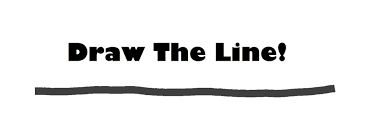We are often asked about what makes a good client and conversely what types of clients we would refuse to take on. Not surprisingly the answers are not clear cut. Our ideal client is collaborative, committed to transparent communication and shares our passion for great storytelling, either because they are storytellers or recognize the value of creating a narrative to engage their audience. The client also needs to benefit from our expertise in entertainment. And, since we are a business, they need to be able to afford our services.
Sometimes great projects come encumbered by challenging people and/or paltry budgets. We do our best to avoid abusive individuals–sometimes you don’t know until you start working with them–but will on occasion discount our fee if we feel that the agency will either benefit from association with the project or we’re investing in a relationship that has the potential to be long term.
Despite the passion or belief of the creator, not everything we work on is awards worthy or will be critically acclaimed. We don’t sit in judgement as we have learned over the years that the audience can love a film or series that has been panned and a critically acclaimed project may only be loved by the critics and die at the box office. More important to us is the subject matter, particularly when we’re working on documentaries. We’re able to be far more effective when we’re aligned with the values espoused by the filmmakers.
We strive for the ideal but sometimes have to settle for checking most, not all of our boxes. We have long standing relationships with studios, streamers, networks and production companies. Most of their projects are great, but every once in a while we get a clunker. We find the one thing that’s good about it and do our best because we want to work on the next one.
Do we ever say no? Absolutely. We don’t take on clients whose expectations are beyond the realm of reason. It is important that they understand what is achievable as we don’t want to set ourselves up for failure. We are specialists so we don’t take on projects that won’t benefit from our expertise. We’re happy to refer them to more appropriate colleagues. And we won’t knowingly take on abusive clients.
Do we ever let staff reject clients? Very rarely. Sometimes they see something that we might have missed. However, if there is subject matter with which they are personally uncomfortable with, we won’t require them to work on a project.
The good news for us is that we’re often representing the Davids in their fights against the Goliaths responsible for causing some of the world’s problems so we don’t have to twist ourselves into knots about justifying our work from a values perspective.
